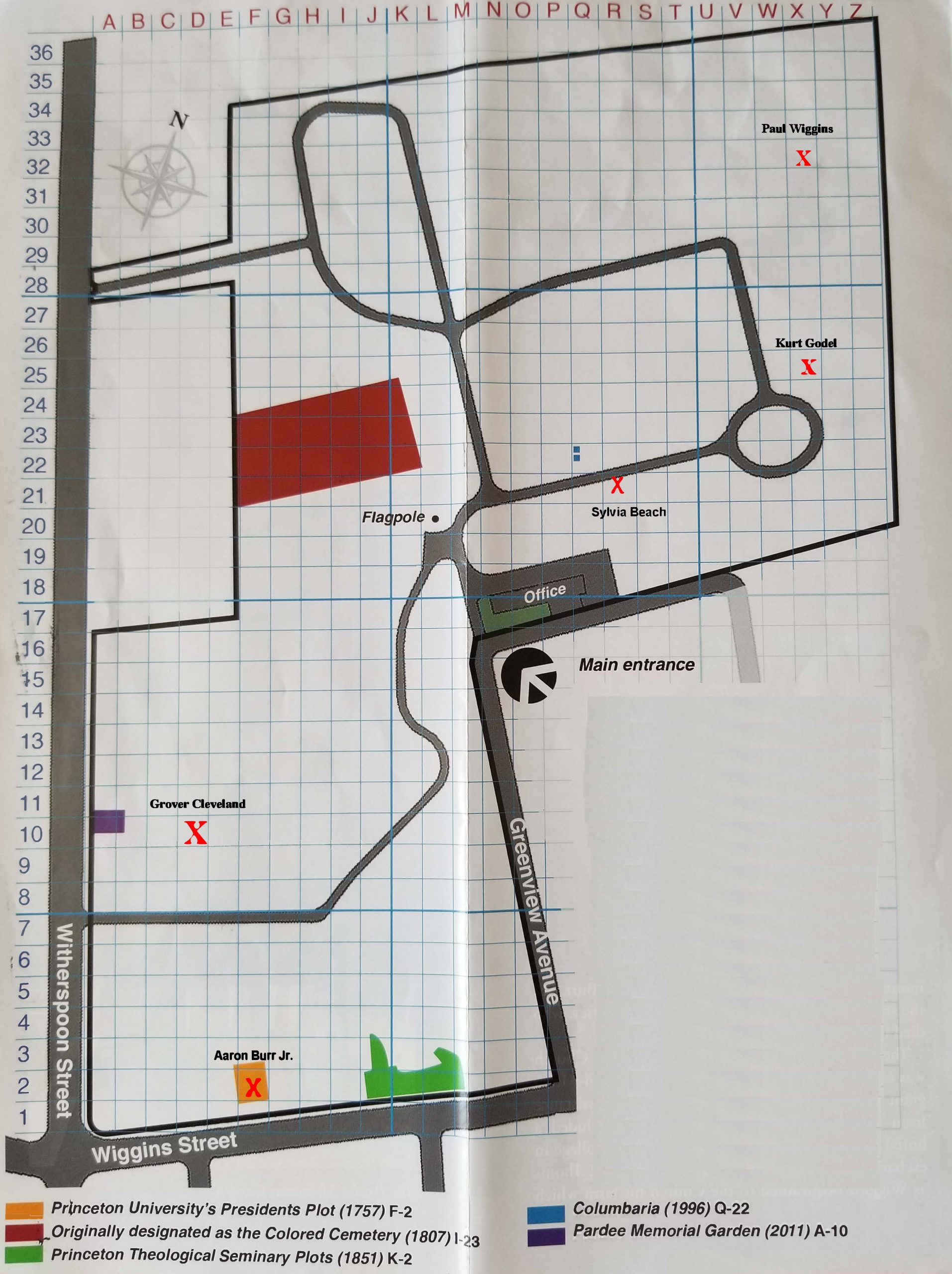Kurt Gödel
Fun Fact
Kurt Gödel lived at 145 Linden Lane in Princeton, New Jersey and was often seen walking home with Albert Einstein.
In 1987 the Kurt Gödel Society was founded in his honor for the promotion of research in the areas of logic, philosophy, and the history of mathematics. Five volumes of Gödel’s collected works have been published. The first two include Gödel’s publications; the third includes unpublished manuscripts from Gödel’s Nachlass, and the final two include correspondence. A biography of Gödel was published by John Dawson in 2005: Logical Dilemmas: The Life and Work of Kurt Gödel.
Cemetery Information:
Final Resting Place:
Princeton Cemetery
29 Greenview Avenue
Princeton, New Jersey, 08542
USA
North America
Map:

Grave Location:
Section 3, Block 10, Lot 010A, Grave: 1Grave Location Description
As you drive through the entrance of the cemetery, past the office on your right, take the first right. Continue straight and stay to the right and drive 3/4 around the roundabout, bear right, and then park. Walk to your right about 6 rows and Kurt Gödel’s upright monument should be visible about 80 feet from the road.
Grave Location GPS
40.35512121, -74.65871115Photos:
Read More About Kurt Gödel:
- Published Obituary
- Wikipedia Entry
- Waiting for Gödel
- The Smartest Houses in Princeton
- From Genius to Genius: A Walking Tour in Princeton
- Kurt Gödel: Life, Work, and Legacy
- Tragic deaths in science: Kurt Gödel - looking over the edge of reason
- Kurt Gödel – The Brilliant, Paranoid Mathematician who Refused to Eat
- Adele Gödel - wife of Kurt Gödel









